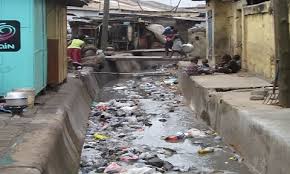Welcome
....to JusticeGhana Group

JusticeGhana is a Non-Governmental [and-not-for- profit] Organization (NGO) with a strong belief in Justice, Security and Progress....” More Details
Sanitation beyond “clean-up exercises”
- Details
- Parent Category: Main
- Category: Features
- Created on Thursday, 06 November 2014 00:00
- Published Date
- Hits: 114289
 Sanitation beyond “clean-up exercises”
Sanitation beyond “clean-up exercises”
Last Saturday, many Ghanaians, led by the President, did a public clean-up of the environment after he declared 1ST November “National Sanitation Day”. The initiative was prompted by yet another cholera outbreak that, according to the President had affected 9000 and taken 85 lives.
As reported, “President Mahama said it was unacceptable that in the 21st century cholera would be attacking people and killing as many as 85 in the country.” The President encouraged people to wash their hands and promised that the government will distribute bins to households. The advice for regular hand-washing was spot-on.
Unfortunately, while the exercise was useful, it was largely cosmetic. Consider the following:
• According to the World Bank’s “Human Development Report , only about 15% of Ghanaians have access to improved sanitation, putting us far short of the” Millennium Development Goal” of 54%.
• In a story in 2013, the “Weekend Globe” reported that Accra produces 2,500 tons of rubbish daily and is running out of space as to where to cart the garbage. In the same story, the AMA Deputy Director of sanitation, Samuel Kpodo, stated, “I want to confirm that we still lack a final disposal or dump site for the Accra metropolis.” This situation, to a lesser extent, is present in most of our big cities.
• Per the Ghana Urban Water Company Limited, in 2013, 682,160 cubic metres of water is produced daily while the demand is 1,076,526 cubic metres, leading to a deficit of 40%! The report stated that the company needs 2bn USD over the next 10 years to reach water parity.
• 4,000 Ghanaian children die annually from diarrheal diseases.
• Despite these damning statistics, our governments continue to leave a significant portion of the funding of infrastructure for sanitation to foreign donors.
The truth is that tackling sanitation will require significant investments by government and private industry in infrastructure and personnel, as well as a change in the attitude of Ghanaians.
Regardless of how much clean-ups we do, we need people to have access to adequate and sustained clean water in order for there to be cleanliness. While the President was right to encourage hand-washing, it is hard to do regular hand-washing when you lack potable water.
Furthermore, even if every household gets a bin, there must be a place to take the solid waste in those bins. In Accra, in many neighborhoods, people have taken to dumping their garbage in inappropriate places at night because they have nowhere to take the garbage.
Have you ever been somewhere in Accra Central and needed to use a toilet? Hmmm!! Here is what we must do to get to a “CLEAN GHANA”
First, the government must significantly increase investments in the sanitation sector—cleanliness is not cheap.
Second, we must increase taxes on corporations and residents, coupled with requirements for private industries and establishments to provide places of convenience as a condition for doing business. A walk into the bathrooms of many organizations, including many of our universities and hospitals, will kill one’s appetite for days due to the smell.
Third, the President must convene a “Sanitation Summit” of stake-holders, including the relevant ministries, Metropolitan Assemblies, NGO’s and legislators to help develop a national sanitation plan. This plan must have as a central element the conversion of garbage to energy. That concept seems ready-made for a country that lacks sufficient energy and is drowning in waste.
Fourth, Parliament must enact such plans into law backed by the necessary funding.
As the UN’s Committee on Economic, Social and Cultural Rights stated recently, “The human right to water is indispensable for leading a life in human dignity. It is a pre-requisite for the realization of other human rights.”
No nation with smelly toilets, garbage heaps—citizens who regularly use “free range” and entities that deal with the public regularly without toilets or running water can claim seriously to be modern.
Let us get clean and modern—together.
Source: Arthur Kobina Kennedy


